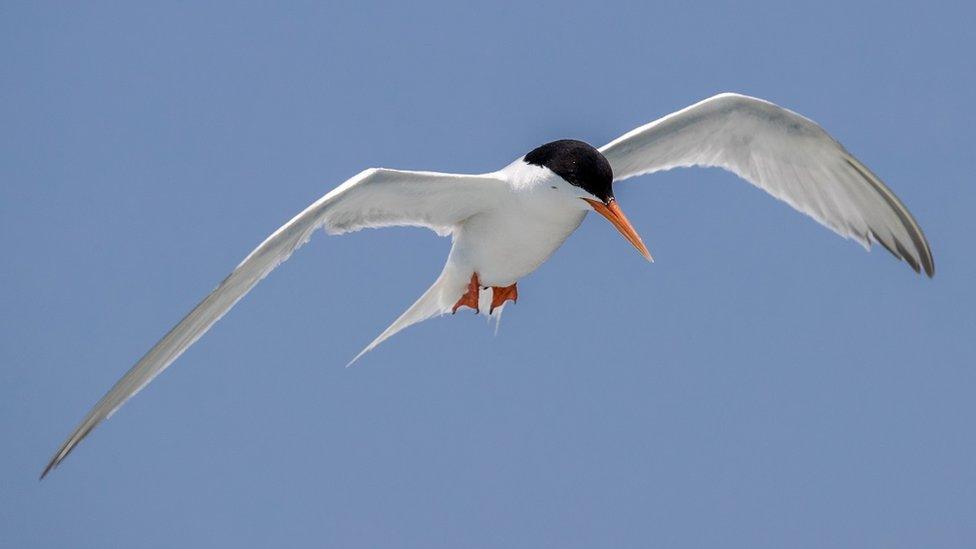Coquet Island seabirds seen avoiding avian flu death sites
- Published
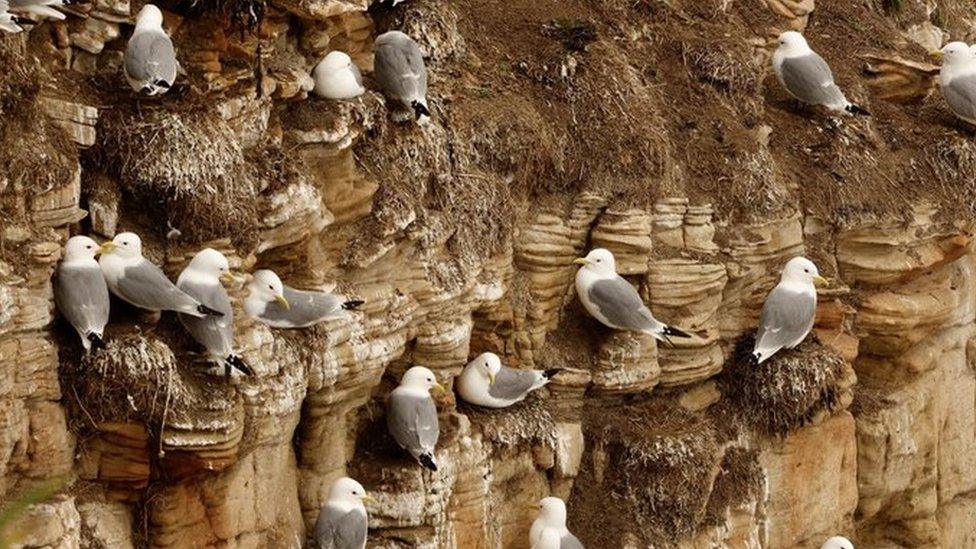
The colony of kittiwakes have avoided nesting at the same site where many of their species died last year
A seabird expert says he has observed returning species avoiding nesting areas which were wiped out by bird flu.
Ibrahim Alfarwi, an RSPB warden on Coquet Island, said this season's sandwich terns and kittiwakes have shunned sites used as colonies last year, when the disease took hold.
The 41-year-old said the observation was "interesting".
The small island off the Northumberland coast is managed by the RSPB and is home to about 82,000 seabirds.
It is a protected sanctuary for puffins, roseate, sandwich, common and Arctic terns, as well as kittiwakes, eider ducks and black-headed gulls.
In 2022, breeding at the densely-packed site was cut short when thousands of birds and almost 2,000 nests were lost as bird flu took hold.
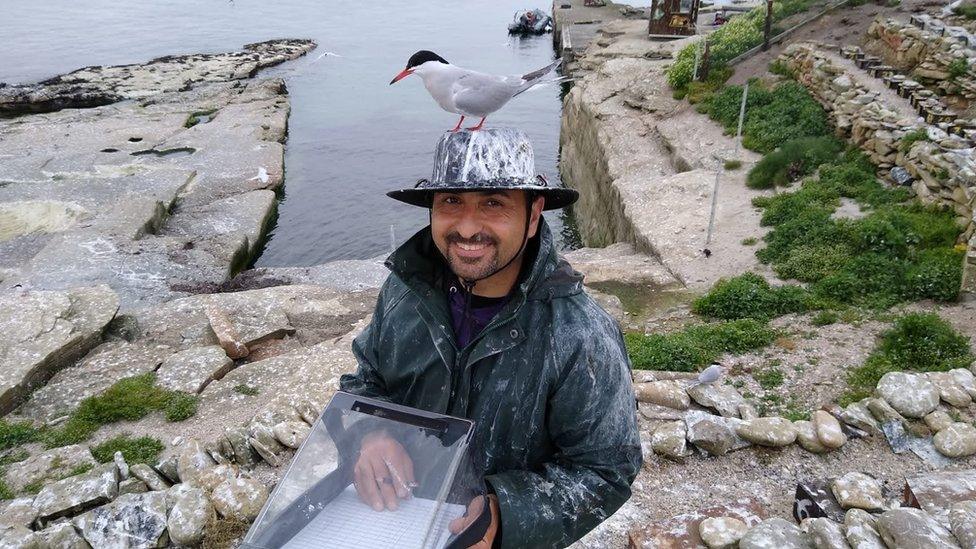
Mr Alfarwi, an RSPB warden, has worked on Coquet Island since 2016
Mr Alfarwi, who has worked on Coquet Island since 2016, described the scale of suffering as "terrible to see". He spent weeks collecting and burying carcasses.
"We saw 1,964 sandwich tern nests lost last year - with almost 2,500 chicks dead at the main breeding spot.
"The sandwich terns came back late in the season and established another colony about 150m (492 ft) away from the previously used spot and thankfully 73 chicks fledged.
"This year they have returned to the newer established colony".
He added that kittiwakes had also "avoided the main colony" where so many birds were lost.
Although he concedes was "no scientific evidence" for the birds moving nesting locations he said it was "interesting" because in his experience terns appeared to show learned behaviour.
"If we catch them to put rings on them and use traps, they can remember this, and avoid them".
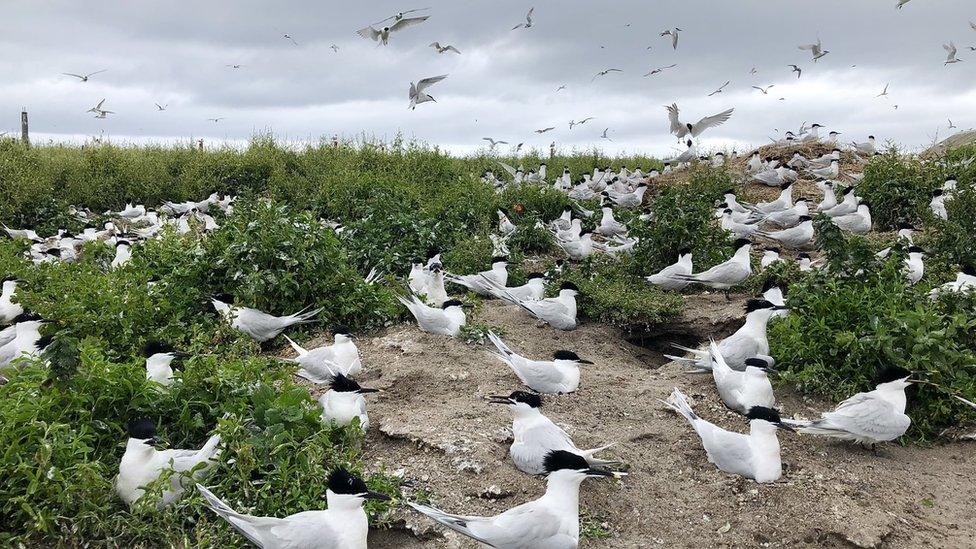
Returning sandwich terns have chosen a new nesting ground following the bird flu outbreak
Mr Alfarwi, who moved from Syria in 2011 to study applied ecology at Newcastle University, said life on the island he says suits him but the incessant noise is not for everyone.
"We sleep well when we hear all the noise, it's when it goes quiet we worry."
During the breeding season he lives in the island's Victorian lighthouse, along with the four other members of the RSPB team.
This year wardens have put in a "high standard of biosecurity measures" and are keeping "extra vigilant".
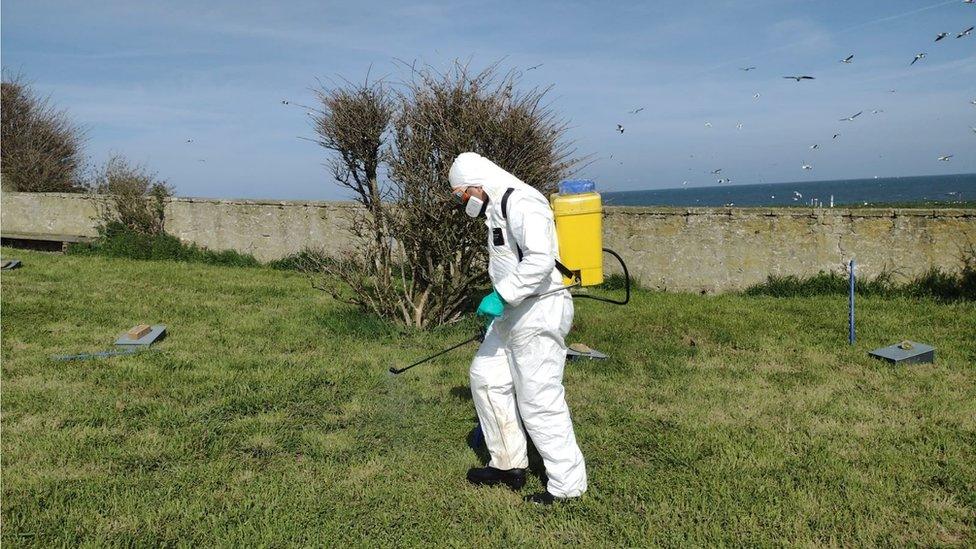
Wardens started work last autumn to make sure all the nesting areas were thoroughly disinfected
In April, bird flu was confirmed at the Farne Islands - 20 miles (32km) to the north of Coquet Island - for a second year.
Worrying cases have been suspected nearby - a gannet on Coquet's inter tidal area and a mallard in the sea - have been seen with bird flu symptoms.
Although no cases have been confirmed on the island.
Coquet site manager David Morris said: "We've thrown the kitchen sink at it to get the habitat right.
"A bit like the Covid pandemic, we're learning all the time about herd immunity and fingers crossed some of the returning adult birds could have resistance."
New webcams have been installed at nesting areas - and the team will continue to monitor the site from the roof of the lighthouse.
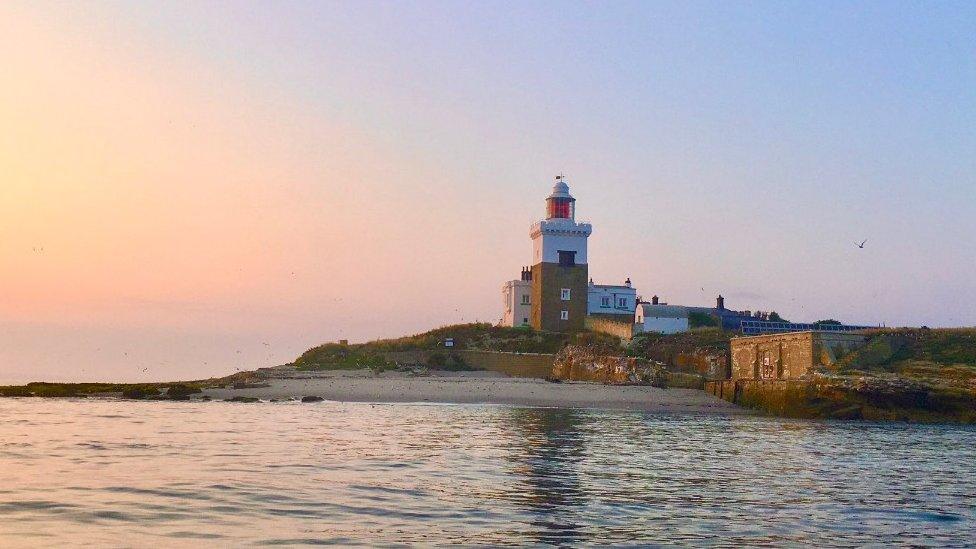
The RSPB-managed site is off limits to the public because of its importance as a wildlife sanctuary

Follow BBC North East & Cumbria on Twitter, external, Facebook, external and Instagram, external. Send your story ideas to northeastandcumbria@bbc.co.uk, external.
Related topics
- Published25 April 2023
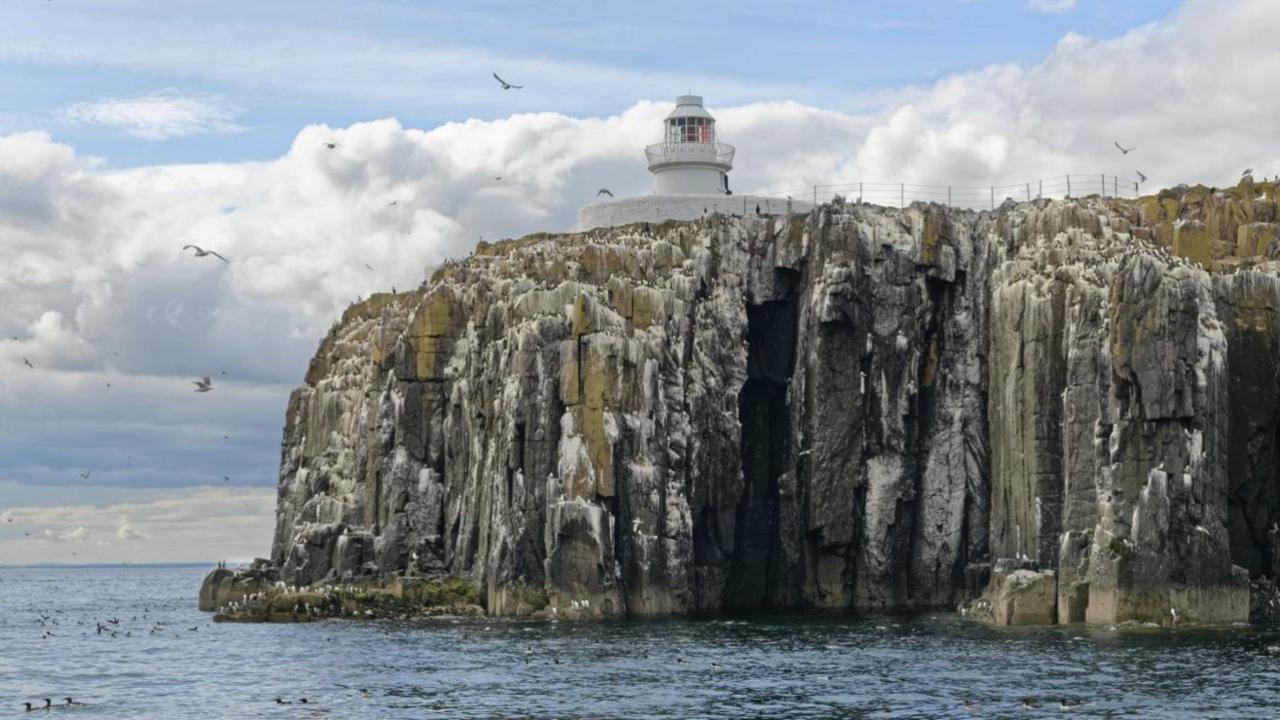
- Published18 August 2022
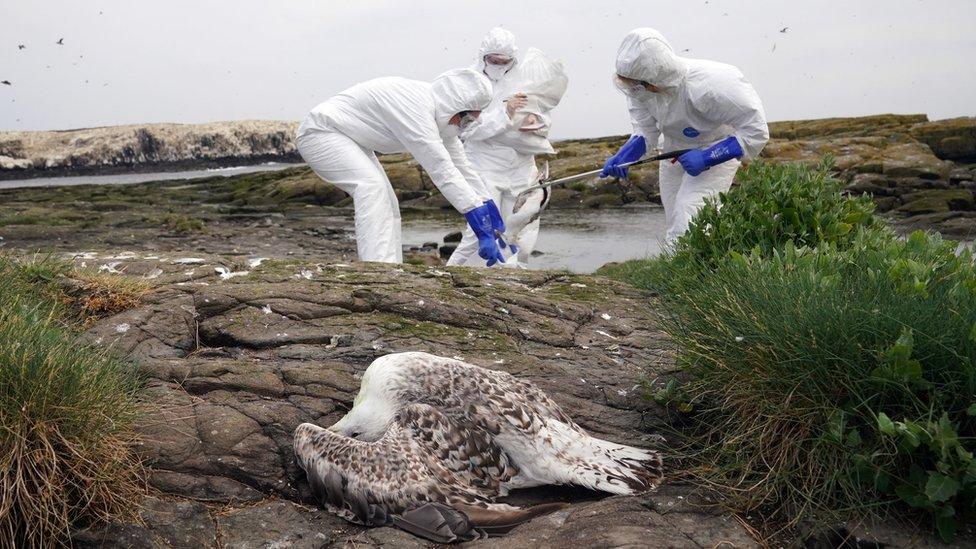
- Published10 August 2022
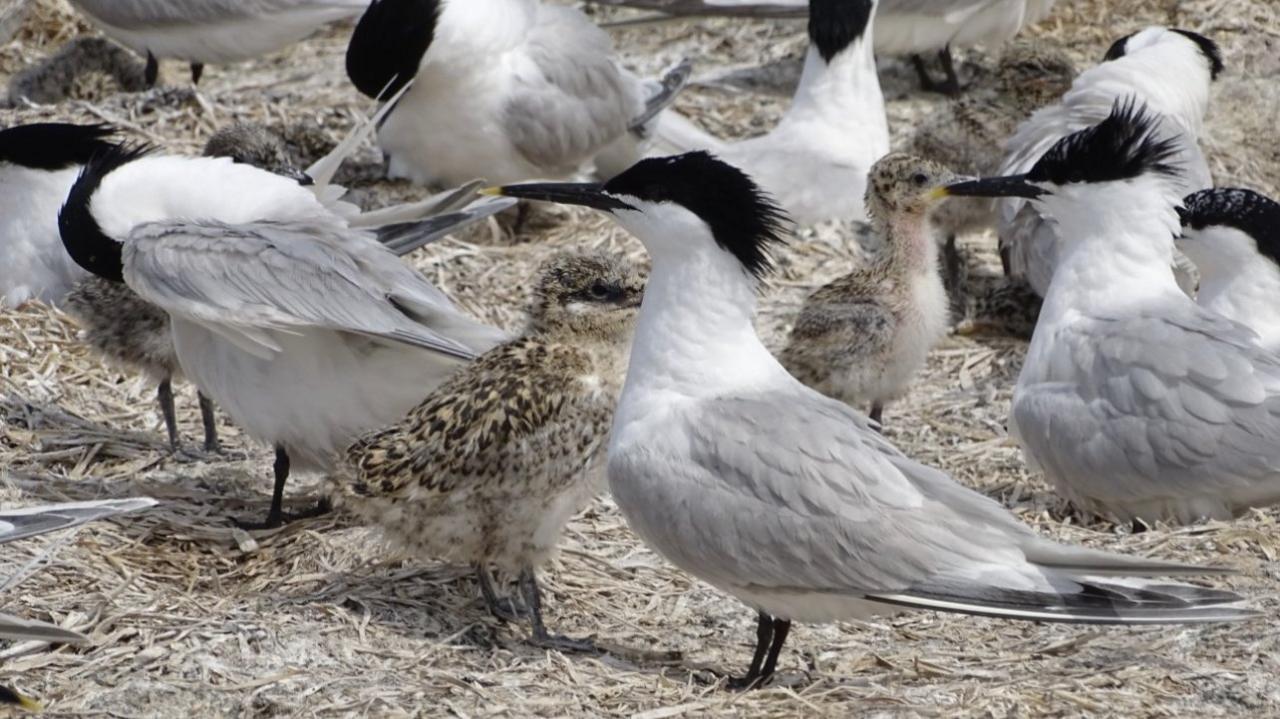
- Published15 July 2022
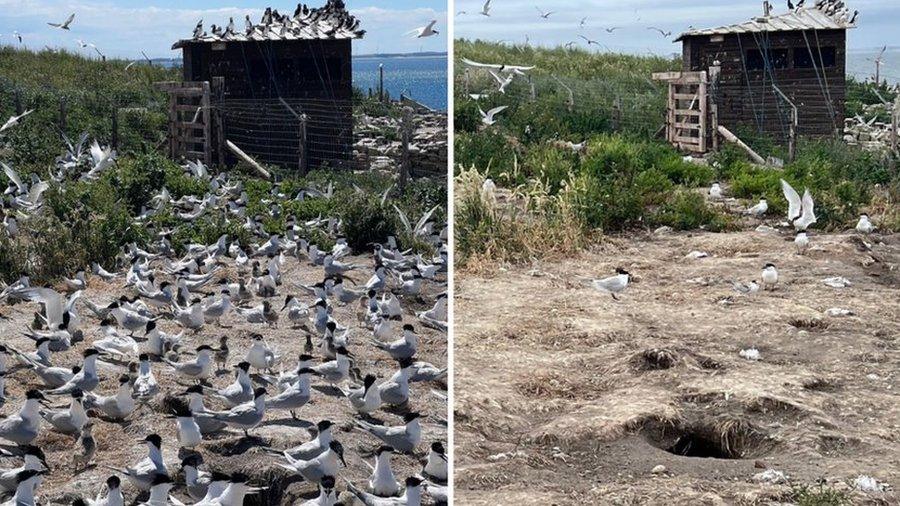
- Published2 July 2022
